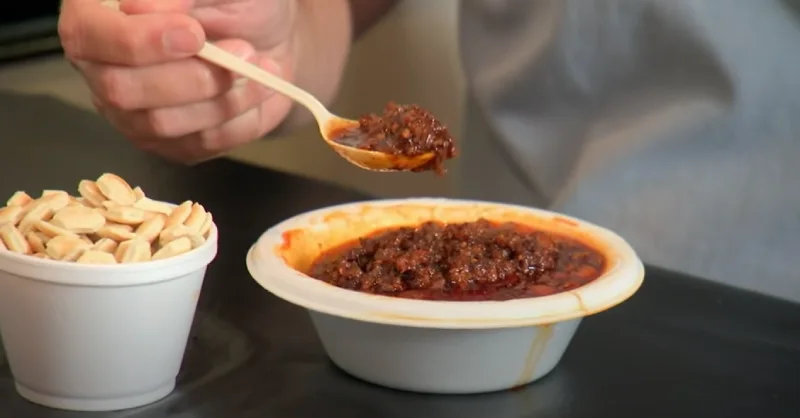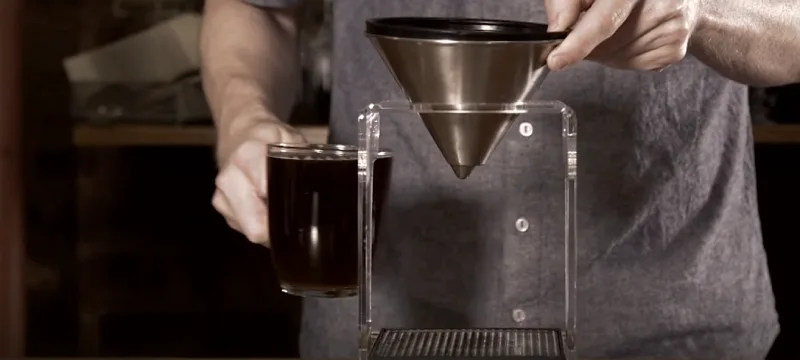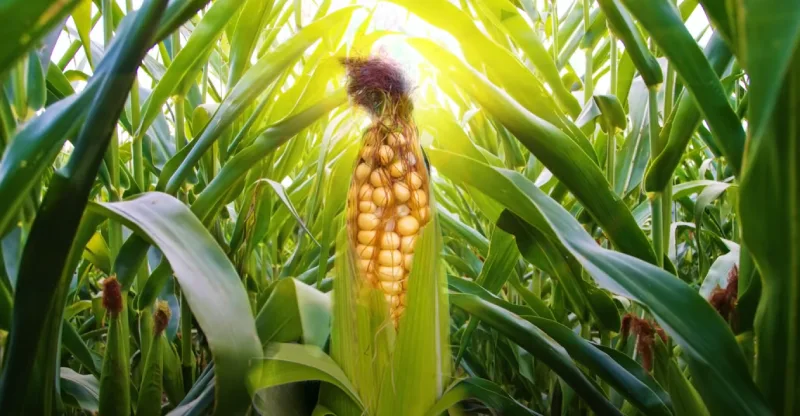Cycling in hot weather leaves much of your skin exposed to the sun. Due to your cycling posture, areas like the back of your neck, thighs, legs, hands, and forearms are especially susceptible. Since you’re in constant motion, finding shade for long periods is nearly impossible.
You can avoid sunburn discomfort when cycling by avoiding spicy foods and processed or salty foods which can aggravate skin irritation and delay recovery. Stay away from high-sodium foods to help manage sunburn symptoms effectively during cycling.
We will explore why these foods should be avoided in this blog post, so that you can gain a deeper understanding.
9 Foods To Avoid With Sunburn

Your diet contributes significantly to sunburn recovery. Specific foods can either facilitate or impede your body’s sunburn recovery. To enhance your healing process, it’s vital to be mindful of your dietary choices and steer clear of foods that can worsen sunburn symptoms. Opt for avoiding spicy, sugary, and processed foods to promote your skin’s recovery journey.
Spicy Foods
When dealing with sunburn, it is essential to consider your diet, as certain foods can aggravate symptoms and prolong recovery. Spicy foods, in particular, should be avoided because of their potential to aggravate sunburn symptoms.
Why Spicy Foods Can Worsen Sunburn Symptoms
Spicy foods contain compounds such as capsaicin, which can have various effects on the body that may be detrimental to cyclists having sunburn:
- Increased Body Temperature: Capsaicin can raise body temperature, which can lead to increased discomfort and heat sensation in sunburned areas.
- Inflammation: Spicy foods can contribute to inflammation, which can exacerbate the redness and swelling associated with sunburn.
- Dehydration: Consuming spicy foods can lead to sweating, which can cause dehydration. Hydration is crucial for skin healing and overall recovery from sunburn.
Sugary Foods and Beverages
When recovering from sunburn, the foods and beverages you consume can significantly influence the healing process. One key dietary factor to consider is sugar intake. Sugary foods and beverages can have several adverse effects on inflammation and overall recovery.
How Sugar Affects Inflammation
High sugar consumption can exacerbate inflammation, which is detrimental for cyclists dealing with sunburn. Here’s how sugar affects inflammation:
- Elevated Blood Sugar Levels: Consuming sugary foods and beverages increases glucose levels. High blood sugar levels can stimulate the production of inflammatory cytokines, which can worsen sunburn symptoms.
- Oxidative Stress: Excessive sugar intake can increase oxidative stress in the body, leading to further skin damage and delaying the healing process.
- Weakened Immune Response: Sugar can impair the immune system’s ability to respond effectively to inflammation, prolonging recovery time and increasing discomfort.
Processed and Junk Foods
Recovering from sunburn requires a focus on nutrients that support skin repair and overall health. Unfortunately, processed and junk foods can impede this healing process, making it essential to avoid them during recovery.
Negative Impacts of Processed Foods on Healing
Processed and junk foods can have several adverse effects on the body, particularly for those dealing with sunburn:
- Nutrient Deficiency: These foods are often low in essential vitamins and minerals for skin repair and overall health. Lack of nutrients can slow down the healing process and prolong discomfort.
- High in Unhealthy Fats: Processed foods contain trans fats and saturated fats that increase inflammation and hinder the body’s ability to heal sunburned skin.
- Excessive Sodium: Junk foods’ high sodium content leads to dehydration, which impedes the skin’s healing process. Proper hydration is crucial for effective recovery from sunburn.
- Added Sugars: Like sugary foods and beverages, processed foods often contain added sugars that can elevate blood sugar levels, causing inflammation and delayed healing.
Effects of Alcohol
Recovering from sunburn requires maintaining optimal hydration levels for skin healing and overall health. Alcoholic beverages can significantly impair this process due to their dehydrating effects. Understanding how alcohol influences hydration and healing is crucial for those dealing with sunburn.
How Alcohol Dehydrates the Body
Alcohol consumption can lead to dehydration through several mechanisms:
- Diuretic Effect: Alcohol acts as a diuretic, increasing urine production and leading to the loss of fluids and electrolytes. Dehydration can prevent sunburned skin from healing.
- Impaired Hydration: Alcohol-related excessive fluid loss can reduce the body’s ability to retain water, further exacerbating dehydration.
- Reduced Skin Moisture: Dehydration from alcohol can lead to dry, flaky skin, aggravating sunburn symptoms and slowing down the healing process.
Caffeine’s Role in Dehydration

When recovering from sunburn, maintaining optimal hydration is crucial for healing and overall skin health. Caffeine, commonly found in coffee, tea, and certain sodas, can contribute to dehydration, potentially hindering the recovery process for those dealing with sunburn. Understanding caffeine’s impact on hydration is essential for effective sunburn management.
How Caffeine Contributes to Dehydration
Caffeine dehydrates the body through several mechanisms.
- Diuretic Effect: Coffee stimulates urine production, leading to fluid loss. This can cause dehydration, which is detrimental to the healing of sunburned skin.
- Reduced Fluid Retention: Caffeine can cause excessive fluid loss, impairing the body’s ability to retain water and exacerbating dehydration.
- Increased Sweating: Caffeine consumption can increase sweating, further contributing to fluid loss and dehydration.
Gluten on Sunburn
For cyclists recovering from sunburn, managing a diet to minimize inflammation and promote healing is essential. Gluten in wheat, barley, and rye can adversely affect those with sensitivities or intolerances, potentially slowing down the recovery process. Understanding how gluten affects inflammation and healing can guide dietary choices during sunburn recovery.
How Gluten Affects Inflammation and Healing
Gluten can influence the body’s inflammatory response and healing capabilities in several ways:
- Inflammatory Response: In cyclist with gluten sensitivity or intolerance, gluten causes inflammation in parts of the body. This systemic inflammation can hinder the skin’s ability to heal from sunburn.
- Nutrient Absorption: Gluten-induced inflammation can damage the intestinal lining, impairing the absorption of essential nutrients necessary for skin repair and overall health. Poor nutrient absorption can delay the healing process.
- Digestive Issues: Gluten sensitivity can lead to digestive discomfort, exacerbating stress and inflammation, further affecting the body’s ability to recover from sunburn.
Yogurt on Sunburn
When recovering from sunburn, it’s essential to consider how certain foods might influence inflammation and healing. While often praised for its probiotic benefits, yogurt may not be suitable for everyone, particularly those with lactose intolerance or dairy sensitivities. Understanding how yogurt can affect inflammation and recovery is essential for sunburn recovery.
How Yogurt Affects Inflammation and Healing
Yogurt can impact the body’s inflammatory response and healing capabilities in several ways:
- Lactose Intolerance: For cyclists who are lactose intolerant, consuming yogurt can lead to digestive issues such as bloating, gas, and diarrhea. This digestive discomfort can contribute to overall stress and inflammation, hindering healing.
- Dairy Sensitivities: Some people experience adverse reactions to dairy proteins like casein and whey, which can trigger inflammation and exacerbate symptoms, potentially slowing down skin repair.
- Immune Response: In those with a dairy allergy, consuming yogurt can provoke an immune response that leads to inflammation, further impeding the body’s ability to heal from sunburn.
Garlic on Sunburn
While garlic is celebrated for its numerous health benefits, it is not suitable for everyone, especially for those recovering from sunburn. For cyclist with sensitivities or allergies, garlic can influence inflammation and impact the healing process. Understanding how garlic affects inflammation and recovery is essential for making informed dietary choices during sunburn recovery.
How Garlic Affects Inflammation and Healing
Garlic can impact the body’s inflammatory response and healing capabilities in several ways:
- Allergic Reactions: Some cyclist may be allergic to garlic, leading to symptoms such as skin rashes, itching, and swelling. These allergic reactions can exacerbate inflammation and hinder the healing process of sunburned skin.
- Digestive Sensitivities: Garlic may trigger digestive discomfort in cyclists with sensitivities, resulting in bloating, gas, and stomach pain. This digestive strain can add to general inflammation, potentially hampering recovery from sunburn.
- Blood Thinning Properties: Garlic has natural blood-thinning properties, which might interfere with the body’s healing mechanisms and affect blood clotting, potentially prolonging the healing of damaged skin tissues.
Corn on Sunburn Recovery

Corn is a staple in many diets, but for cyclist recovering from sunburn, it’s important to consider how this food might influence inflammation and the healing process. Corn, particularly in its processed forms, is not suitable for everyone, especially those with allergies. Understanding how corn affects inflammation and recovery is essential when recovering from a sunburn.
How Corn Affects Inflammation and Healing
Corn can impact the body’s inflammatory response and healing capabilities in several ways:
- Allergic Reactions: Some cyclist may have an allergy to corn, skin rashes, swelling, and itching result. Sunburned skin may be hindered in its healing process as a result of allergic reactions.
- Digestive Sensitivities: Corn, especially in processed forms like corn syrup and corn flour, can irritate sensitive cyclists, resulting in bloating, gas, and stomach discomfort. This digestive stress can contribute to overall inflammation, which may slow down the recovery from sunburn.
- High Glycemic Index: Corn spikes blood sugar since it has a high glycemic index. These spikes can trigger inflammatory responses in the body, potentially affecting the healing of damaged skin tissues.
Conclusion
The best way to take care of your skin after a sunburn goes beyond topical treatments; it also involves a healthy diet. Avoiding spicy foods, sugary foods and beverages, processed and junk foods, alcoholic beverages, caffeine, gluten, yogurt, garlic, and corn can significantly aid in your skin’s healing process.
These foods can exacerbate symptoms, increase inflammation, and hinder your body’s natural recovery mechanisms. By making mindful eating choices, you can support your skin’s recovery and foster a quicker return to comfort. Remember, a healthy diet is not just beneficial for sunburn recovery but also for your overall well-being.
FAQs
What Food Helps With Sunburn?
Oatmeal is a great food that helps with sunburn, offering relief when applied to the affected area. Additionally, fat-free milk, pomegranate, strawberries, and tomatoes are also beneficial in soothing sunburned skin. Including these natural food remedies in your routine can aid in dealing with or preventing summer sunburns.


